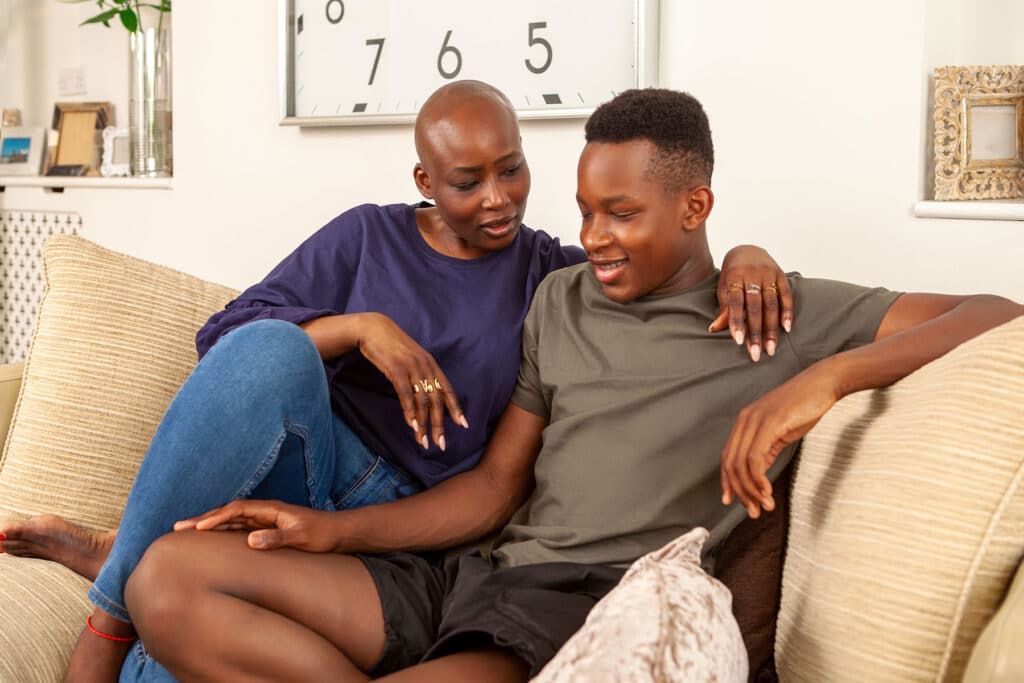Communication breakdowns between parents and their teen children are common. In many cases, these breakdowns don’t produce any lasting adverse effects. But if your child experiences substance or mental health problems, they can have more severe consequences. Poor communication can interfere with your ability to understand your teen and support their recovery. With help from our family therapy program, you can address communication problems and other significant issues. It can be a way to improve communication in families. Contact Imagine Fort Collins online or call 888.291.2309 to learn more about improving family communication.
Why Improving Family Communication Is Important
In one way or another, most parents have difficulty communicating with their teen children. This is to be expected, given the changing nature of your relationship with your child during their adolescence. However, specific communication issues can lead to notably adverse outcomes, including:
- Ongoing disputes that never get resolved
- Frequent bouts of yelling and other forms of verbal aggression
- Recurring feelings of blame, shame, or rejection
These kinds of negative communication styles can have a notably harmful impact if your teen is in recovery. Why? Parents are typically their children’s primary source of support and encouragement. Without that support and encouragement, recovery becomes much more difficult. You can help your teen avoid this major potential obstacle by improving communication. You can also start reaping the benefits of an improved relationship with your child.
Ways to Improve Communication in Families Through Therapy
Family therapy sessions often focus on how to improve family communication. That’s true for all families, not just those that include teenagers. Your therapist may use various techniques to help you and your child communicate better. Some of the most common methods include:
- Teaching all family members how to listen to each other actively
- Showing you and your child how to express yourselves respectfully
- Helping you rephrase your comments in less harmful ways
- Teaching you how to say no in ways that don’t inflame conflict
- Showing you how to discuss issues of concern without blaming others
Your therapist may also ask you to improve family communication outside formal sessions. You might do this while eating together or participating in family leisure activities. The specific activities aren’t necessary as long as you use them to improve your communication skills.
The Benefits of Improved Family Communication
Learning how to improve family communication doesn’t just help you provide better support for your child. It enables you to understand them better at this crucial time. You can also learn how to be more patient during your child’s recovery through therapy. That’s essential since this process can come with notable ups and downs.
Significantly, therapy may help you and your child understand each other better. This can not only lead to improved outcomes in rehab. It can also pay long-term dividends for your entire family. Moreover, better understanding often comes with a greater willingness to take responsibility for one’s actions. That’s true for your teenager. It’s also true for you, your spouse, and other family members.
Get Started on Family Therapy in Colorado at Imagine Fort Collins
Want to know more about potential ways to improve communication in families? The team at Imagine Fort Collins is standing by to help. Our knowledgeable staff can answer any questions you may have about family therapy. We can also help you determine if this therapy option might be helpful to you and your teenager.
Family therapy is a frequent addition to substance and mental health recovery plans at Imagine. In all cases, we help ensure this therapy fits well with other aspects of your child’s treatment. Call us today at 888.291.2309 for more information. You can also reach us online.




